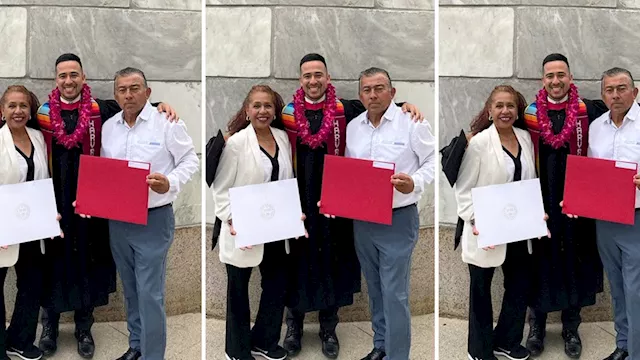What’s most shocking about Jeremy Pauley isn’t his tattooed eyeball or the metal spikes protruding from his scalp.Standing in the doorway of his rural Pennsylvania home, dressed all in black, he greets an unannounced reporter with patience.
It was Pauley's arrest that pointed investigators to a nationwide network of stolen human remains trafficking and led them to Harvard Medical School. There, a lone morgue manager allegedly plundered parts from bodies donated for science, and sold them online for profit. The crimes themselves were shocking, as was Harvard’s failure to secure its morgue. And the scandal exposed a not-quite-underground market for human remains, where the ethical lines are murky.
At some point in Cedric Lodge’s almost 30-year career in the Harvard Medical School morgue, working mostly alone and far from the eyes of his supervisors, he allegedly decided to get a piece of this trade. The supply was right there: dozens of donor bodies, gifted for medical students to learn from in anatomy class.
Lodge, now 56, and his wife, 64, were arrested last June and charged by federal authorities with trafficking in stolen human remains. Cedric Lodge has denied the charges. Denise Lodge took a different path; she pleaded guilty in April and faces up to 10 years in prison. Officials at Harvard medical school declined to be interviewed. In written responses to WBUR’s questions, the school called Lodge’s alleged actions “shocking, abhorrent, and an appalling violation of Harvard’s expectations that our anatomical donors be treated with reverence, respect, and gratitude.” The school expressed “deep sorrow for the uncertainty and distress that families face as the criminal proceedings continue.
“I was always fascinated by anthropodermic bibliopegy,” Pauley told the interviewer, explaining how he taught himself to turn skin into leather, and how he sourced the raw material. “It's not like it's easy to come by. So I do a lot of work trying to track it down,” he said.His internet fame helped connect him with a steady supply. One day in October 2021, an Arkansas woman named Candace Chapman Scott messaged Pauley on Facebook, court records show.
In February 2022, a woman in Arkansas gave birth to a stillborn baby boy. She named him Lux. As soon as Lux’s body arrived at the mortuary for cremation, Chapman Scott jumped to message Pauley, court records show. She sold him the tiny body for $300, a deal, she said, because it was"not in great shape." Pauley would later send the fetus, plus $1,550, to a man in Minnesota — for five human skulls.
Champney is among those anatomists who want to see bodies donated to science treated less like inanimate objects and more like former human beings who had lives and desires. She asked Pauley to tan the human skin she sent him; and she shipped him more as payment. She allegedly told Cedric Lodge at Harvard she needed more skin to send to"the dude I sent the chest piece to tan."In Arkansas, a woman named Candace Chapman Scott worked at a mortuary that cremated cadavers from the University of Arkansas for Medical Sciences.
Prosecutors say Pauley then sent Lux to a buyer in Minnesota named Mathew Lampi with $1,550, in exchange for five human skulls. That includes Pauley. In a brief interview at his front door in November, he told WBUR he was somewhat interested in talking more about his involvement in the oddities world and how he views the human remains he trades in.
“I always had a penchant for wet, especially fetal specimens,” he told the interviewer. “I love them because when I look at them, I don't see a dead baby … Some people see them and they feel sad, but I'm like, do you know how many lives were saved? Because, you know, somebody saved this specimen and it taught doctor after doctor, after doctor.”
Justin Capps and Sonya Cobb have human remains, including a 36-week-old fetal skeleton pictured on the right, on display in their Delaware home. “The only way I was able to get over any of it was to have a sit-down conversation with each one of them that come in here and explain: 'I'm not going to disrespect you, I'm going to treat you like you should be treated,' ” he said. “ 'You're going to be living in my home … we might as well get used to each other. So, don't haunt me.' ”
Still, Drake said, if he knew the skull on his shelf belonged to someone’s family and they wanted it back, he’d give it to them.
مصر أحدث الأخبار, مصر عناوين
Similar News:يمكنك أيضًا قراءة قصص إخبارية مشابهة لهذه التي قمنا بجمعها من مصادر إخبارية أخرى.
 David Velasquez, Harvard Medical and Business School Graduate, on His Family StoryDavid Velasquez will be the first person to graduate from Harvard Business School, Kennedy School, and Medical School. His family immigrated from Nicaragua, and spoke no English.
David Velasquez, Harvard Medical and Business School Graduate, on His Family StoryDavid Velasquez will be the first person to graduate from Harvard Business School, Kennedy School, and Medical School. His family immigrated from Nicaragua, and spoke no English.
اقرأ أكثر »
